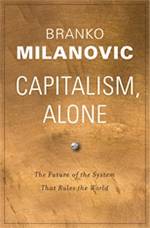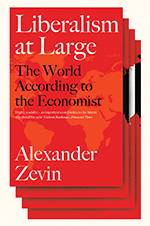Harold James
Says More…
This week, Project Syndicate catches up with Harold James, Professor of History and International Affairs at Princeton University and a senior fellow at the Center for International Governance Innovation.
Project Syndicate: The UK Supreme Court’s ruling that Prime Minister Boris Johnson’s suspension of Parliament was unlawful seems to give you hope that “genuine conservativism” is “poised to stage a comeback against the nihilistic imposters who have been acting in its name.” Yet Johnson seems determined to purge the Conservative Party of all members who do not support the populist Brexit revolution. Without a political party to call their own, how could “true conservatives” stage a comeback?
Harold James: Politics are being recast in almost every industrial country (with Japan as the only obvious exception). In Italy, the Christian Democrats collapsed in the early 1990s. In France, the old two-party system, comprising center-right and center-left forces, was upended in the 2017 presidential election. And in the United Kingdom, Brexit has caused deep political fragmentation, particularly in the Conservative Party.
French President Emmanuel Macron, who created his party La République En Marche ! shortly before the 2017 election, offers the best modern example of how politics can be remade in the twenty-first century. It would have been impossible to predict the party’s emergence even in late 2016.
James recommends
We ask all our Say More contributors to tell our readers about a few books that have impressed them recently. Here are James's picks:
-

The Prime Minister
by Anthony Trollope
Trollope depicts a political system that operates on the basis not of extraordinary charisma or talent, but of simple honesty and decency.
-

Transylvanian Trilogy
by Miklós Bánffy
This work frames the history of the Habsburg monarchy as a warning for elites at risk of squandering their legitimacy. Bánffy is thus the opposite side of the coin to Trollope.
-

Capitalism Alone: The Future of the System That Rules the World
by Branko Milanović
We tend to think about inequality as a country-specific problem. But Milanovic looks at it as a global issue. Back in 2012, he presented his now-famous “elephant curve,” which captures the twin pressures that the new middle class of the developing world (specifically, China) and the elites of the developed world (specifically, America’s 1%) place on the rest. His latest effort forces us to look at capitalism through a very critical lens: Is it truly the best system to address such profound global inequalities? -

Liberalism at Large: The World According to the Economist
by Alexander Zevin
Through the lens of The Economist, Zevin provides a brilliant, critical history of the classic liberal tradition and its problems, including its responses to the challenges of globalization, world war, depression, and renewed globalization.
From the PS Archive
2018
James urged all democracies to learn from the political, economic, and social conditions of the early 1930s. Read the commentary.
2016
In the wake of the Brexit vote and Trump’s victory in the US, James asked whether the populist political revolt could be contained. Read the commentary.
Around the web
To mark the opening of an exhibition exploring the state-sponsored “Aryanization” and plundering of Berlin’s central district, Mitte, James discussed the methods, impact, and aftermath of the Nazi expropriation of Jews. Watch the video.
In a Centre for International Governance policy paper, James explored the “deglobalization” trend, and considers how international governance might best work in the current circumstances. Read the paper.
At a conference focused on a ten-year review of the 2008 economic crisis, James discussed the backlash against globalization and the rise of “disembedded unilateralism.” Watch the video.
